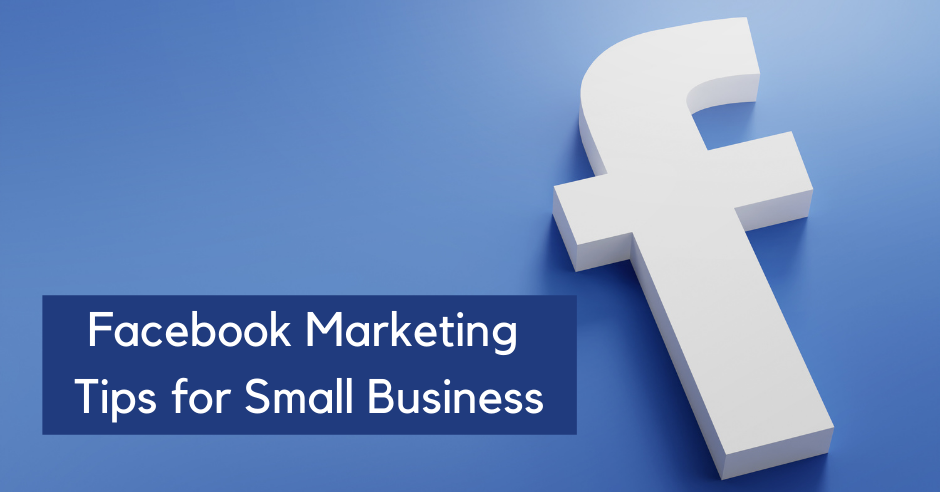7 Facebook Marketing Tips for Small Business

Facebook is a large platform to expand awareness about your small business. However, it can be complicated for small business owners to know where to begin when it comes to their occupancy on the social media site, this is where Facebook marketing tips for small business steps in!
That’s why I’ve gathered a list of Facebook marketing tips for small businesses to assist you in creating a useful Facebook Page for your business—so you can inaugurate promoting your products and services to a broader audience. It can take much copy to score all those points, create a case, and get the opt-in. However, at the end of the day, if you have something they need, they’ll click through to get it—as long as you suppress all the nagging uncertainties in their minds acting as a barrier to becoming your lead.
Table of Content
Here are 7 Facebook Marketing Tips for Small Business:
1 – Visuals to Text Ratio – 80:20
Facebook used to have a 20 percent precept. Facebook would lay a layer covering an image, and if more than 20 percent of the grid represented the copy of the text, the ad would be denied.
That rule is no more in order technically, but it still is in tradition.
Now, they’ve developed up to that rule, so it is not as strict as it may seem, and you can always request a manual review, but Facebook still prefers “little to no text” in ads.
Even if an ad is not discarded for having too much text, the ads with text in them lead to getting lower quality scores, weaker engagement, and therefore deliver worse and cost more.
If you choose to use redaction, make it highly stylized. You can write a copy to supplement the post—choose a high-quality image to attend it, without the text in it.
2 – Reviews to the Rescue
First of all, customer reviews not only give you a chance to estimate your performance. If you regard a lot of negative reviews, then you know you need to level up your game, and those reviews are usually precise enough to tell you how.
Take that feedback (which does not cost a penny), and put it to good use perfecting your posts, and enhancing the customer experience. Social media managers are required to acknowledge the pain points of the customers and be able to solve them!
When the customer reviews are constructive, it’s free advertising. People will see positive reviews and will be more willing to trust your business.
Customer surveys play a big part in buying judgments these days, and you can bet a great rating will be good for business.
In both cases (and especially when there’s negative feedback), you need to be replying to reviews. Maybe not all of them, but surely the negative ones.
Seek to resolve the customer’s concern, and change their impression of your company.
3 – Posts With Solid Purposes and Reasons

You can’t just post things on Facebook and hope someone sees them!
You need to post with intent and then determine what you are going to do with that post — in other words, whether you are going to boost it with a budget or let it be a simple post for your page.
Use Facebook Insights to learn a good posting rhythm and content mix.
small businesses at home need to be more vigilant about how they interact with their audiences. Social media can be a make-it-or-break-it point for the brand!
4 – Capital R’s: Keep It Real, Relevant, and Relaxed
All of us would love to get a huge fan base on Facebook, and the influence of “making it” can become a challenge to having your content light, natural and relevant.
It would be best if you started talking to your target audience – using the posts on your page.
While communicating with fans, you should keep these three pointers in your mind:
- speak like them
- think like them
- act like them
If your target customer is a young mom in my area, you need to post things that appeal to young moms.
You shouldn’t post about stuff not happening locally or things that appeal mostly to men or people without kids.
So to build trust with your fans, you should design your posts to appeal to your target market.
Find ways to portray your brand by being funny, out-of-the-box, informational, or unique, do that, and you’ll be reaching to a large crowd on Facebook.
A nonpromotional post would get more eyeballs than a post that promotes the brand without connecting to the audience!
5 – Keep up With the Ever-Changing Facebook Algorithm
Since organic Facebook marketing tips for small businesses has become more important, it has also become more complicated, it’s time to start looking at careful consideration towards your analytics.
You don’t need anything too upscale or fancy – Facebook’s analytics can show you which posts function better than others.
See what kind of content brings in the most engagement with your followers. Do they acknowledge videos? Which blogs do they click on? What topics get them moving?
Look for trends and then use the same tone for success.
Facebook has revamped its ad system to be more accessible than ever to use.
Paid Facebook ads can be shown right in a user’s newsfeed, seamlessly mixing in with organic posts while boasting better reach.
They’ve also introduced a new ad significance score (basically Quality Score for Facebook.) Give them a chance and see how they operate.
Facebook marketing for small businesses is perfect for companies engaging in competitive productive industries!
If you have a big email list, you can import your contacts (up to 5k names at a time) and encourage them to join your Facebook page.
A higher number of Facebook friends means that your content will reach more people, despite more moderate organic visibility percentages. The more, the merrier.
6 – Analyze, Change Strategies, Analyze Again!
The only way to determine with certainty if your Facebook efforts are going well is to use some metrics and track them.
There’s a number of things you can scale, and a number of ways to track them, but it’s something you need to be arranging.
Measure how efficient your efforts are, determine what’s working and what’s not, and make amendments accordingly.
As you fine-tune your plan, you will find a broader audience, increased leads, and better conversion rates.
Utilizing Facebook for your business can have vital returns, if done right, especially for small business marketing.
It’s a great way to link up with your customers and start conversations.
These Facebook marketing for small business ideas should get you started, and help you increase traffic to your page, your website, and your digital shopping cart.
7 – Timings Are the Key!
As any marketer would tell you, Facebook’s algorithm prefers content by your friends—not content from business pages, even if you’ve liked or followed them.
The simplest way to overcome this restriction is getting the most likes, reactions, comments, and shares on your content as conceivable to show Facebook that your content is deserving to be kept in your followers’ feeds.
To do this, go over to your Facebook analytics (called Insights), which are available at the top of your business page if you have business manager access. Once there, explore your “posts” tab.
This can tell you what times and days of the week, most of your audience is online so that you can schedule or boost posts accordingly.
While there, look through the other data available, especially the “overview” tab—this gives you a dashboard from which you can see all the essential stats and their month-over-month trends.
Wrapping Up!
If you’re a newbie to Facebook marketing for small businesses, it can be misleading. There are so many strategies and plans that can seem adequate if not measured or monitored correctly.
Using Facebook for retargeting ads to boost conversions and draw visitors to your website, you should use link retargeting, too.
This enables you to carry out your retargeting lists and reach out to audiences that haven’t already visited your website before, but which have been affected by your brand on social media.
After getting to know all these Facebook marketing tips for small business, you should have the urge and knowledge, and motivation that is necessary to have a successful Facebook business page.
Happy Facebooking!
Also Read: How to Delete a Facebook Group?









